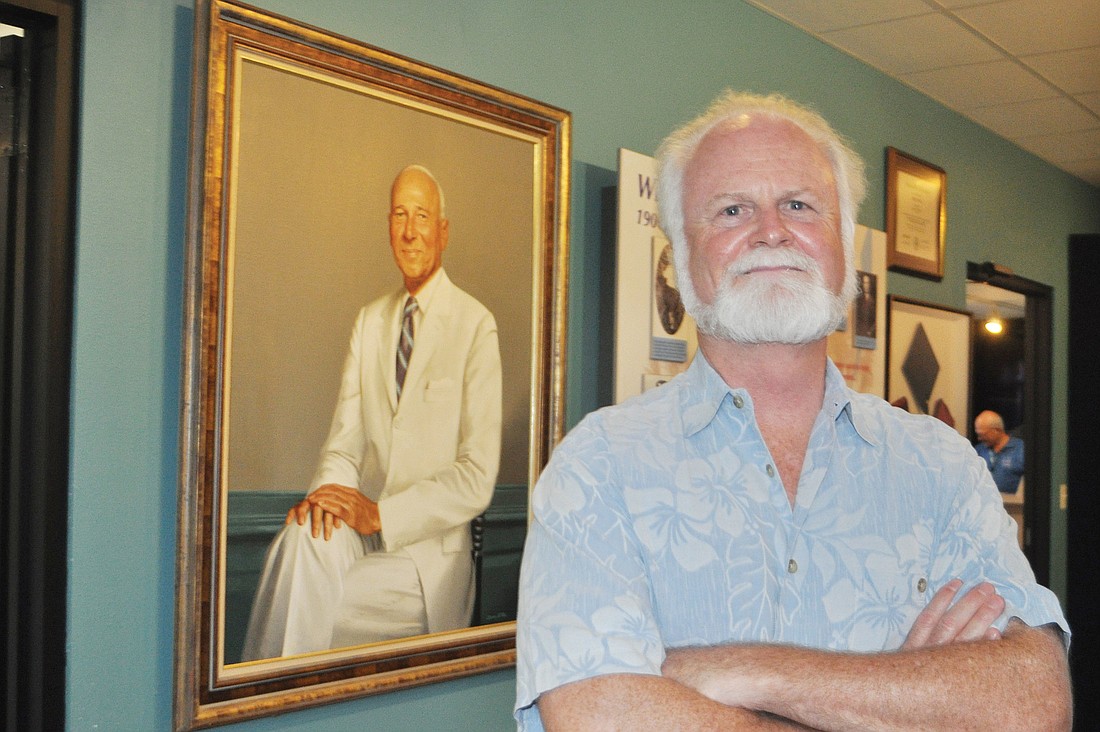- April 19, 2024
-
-
Loading

Loading

Mote Marine Laboratory’s independence is a “double-edged sword,” according to new President and CEO Dr. Michael Crosby.
He has worked for governmental agency labs and university labs.
Unlike Mote, those labs get automatic appropriations.
But, here’s how they’re also unlike Mote: They’re far less likely to fund the research that’s on the most cutting edge of science — such as the possibility of using findings about sharks, which rarely develop cancer, to develop pharmaceutical treatments for the disease. He compares obtaining funding for much of its research to getting venture capital.
Crosby describes Mote as “much more nimble” than other laboratories — thanks in large part to the community.
“It’s able to do the kind of things that address real needs without worrying about political sides,” Crosby said.
Last week, Crosby officially took on the role of Mote president/CEO, three months after longtime president and CEO Dr. Kumar Mahadevan announced his retirement and transition to the role of president emeritus.
Crosby leads a staff of more than 190, of which 31 hold Ph.Ds.
He joined Mote’s staff in May 2010 to lead the lab’s scientific endeavors. He learned about the opportunity through colleagues while serving as vice chancellor for research at the University of Hawai’i-Hilo.
“Who wouldn’t be interested in coming to Mote?” Crosby asked.
In his three years at Mote, Crosby developed the Mote Marine Laboratory Postdoctoral Fellowship Program, which provides support and mentorship for recent Ph.D. graduates, and has worked on several international initiatives expanding Mote’s marine-science leadership worldwide.
He also helped to develop Mote’s 2020 Vision and Strategic Plan — the lab’s current guiding document, which outlines four key priorities, each of which includes several short-term goals.
Some specific goals included in the plan include establishing seven new post-doctoral positions by 2020 — a goal Crosby believes is essential to establishing the next generation of marine research leaders.
Another goal calls for increasing philanthropic contributions from $1 million in 2010 to $5 million annually by 2020.
Crosby believes the community is essential to Mote’s future — but not just because of the money donated or the fact that Mote’s 1,600 volunteers provide the equivalent of 100 full-time employees’ positions during a given year.
Many people think of scientific information as flowing from scientists to the public, he said.
But he believes that scientists can gain valuable insight working with the public.
He remembers learning about oysters and butterfly fish from watermen in the Chesapeake Bay as a young Ph.D. student. He was studying the physiological ecology of invertebrate biovalves, but the watermen taught him things about the organisms he never could have learned from a book or laboratory.
On a similar note, he recounts the story of Mote founder Dr. Eugenie Clark, who founded Mote in 1955. When she started, she was a one-woman scientist assisted by a fisherman. Without his local knowledge, Clark wouldn’t have known where and how to catch a shark.
That’s why he’s excited about Mote’s efforts with groups such as Sarasota Bay Watch and the Sarasota Bay Estuary Program in working toward restoration of the local scallop population or coral reefs.
But Crosby envisions an even broader community of support for the organization.
He sees opportunities for Mote to engage more with national and international businesses and foundations and build more international partnerships.
Crosby, whose research has taken him to every continent other than Antarctica, believes the benefits of global collaboration can extend beyond research by bringing together scientists whose countries may be at odds to discuss common purposes.
Upon taking on his new position last Thursday at Mote’s annual board of trustees meeting, Crosby credited Mahadevan with “the lion’s share of the credit for what Mote has become.” Crosby expressed his future hopes for the laboratory and aquarium.
After accepting the gavel from Mahadevan, Crosby said in a speech:
“Most marine labs around the world are owned by government and universities, and few are independent like Mote — able to respond to emerging needs in the marine environment. Each of our scientists, educators and Aquarists are superstars in their own right. We must empower each of them to make the most of their skills and abilities. Mote is embedded in our community, and our staff and volunteers go above and beyond. Mote is indeed a rare gem. I’m confident that with the continued counsel and engagement of the board and the continued support of the community, Mote’s best days are truly to come.”